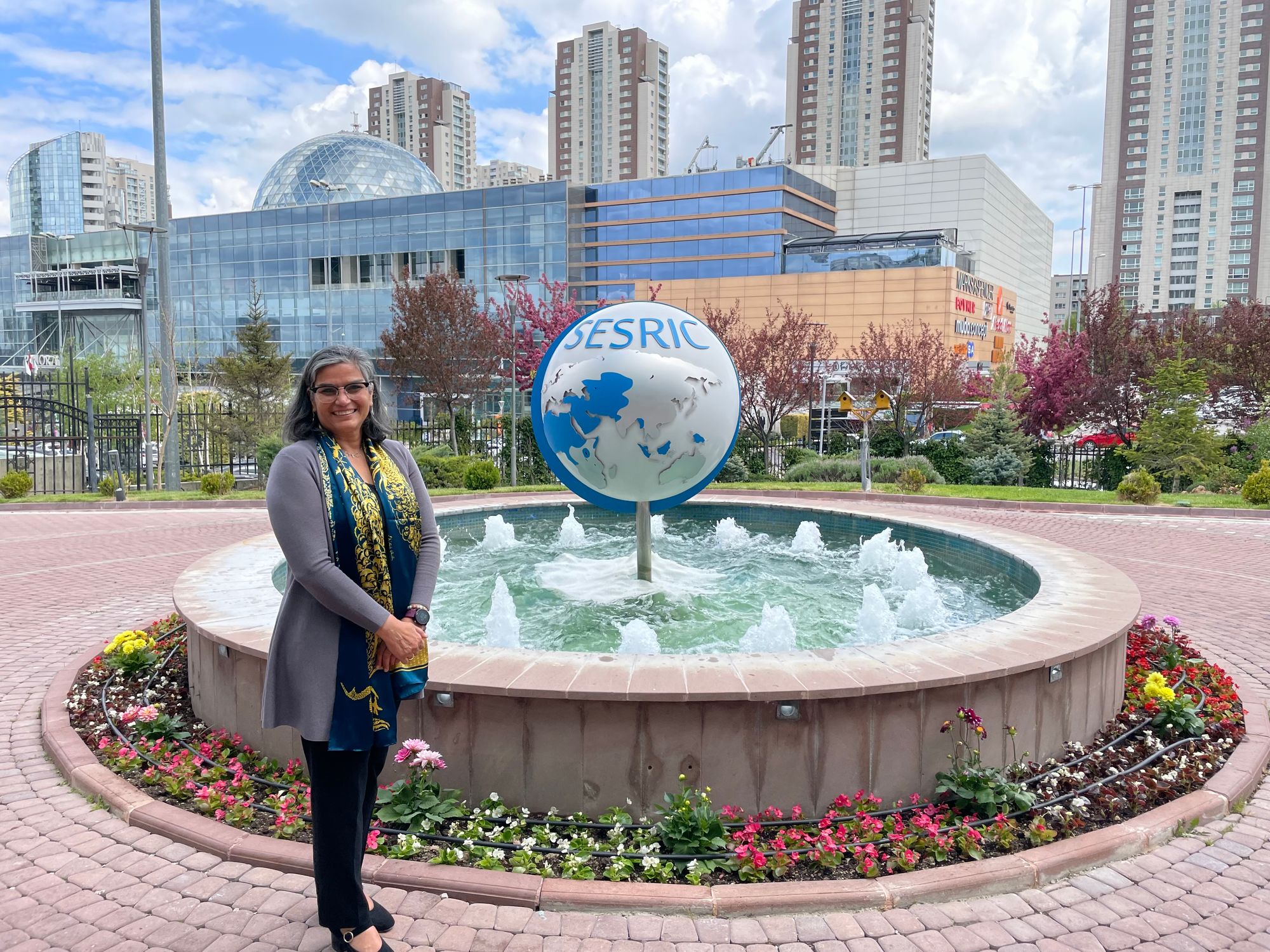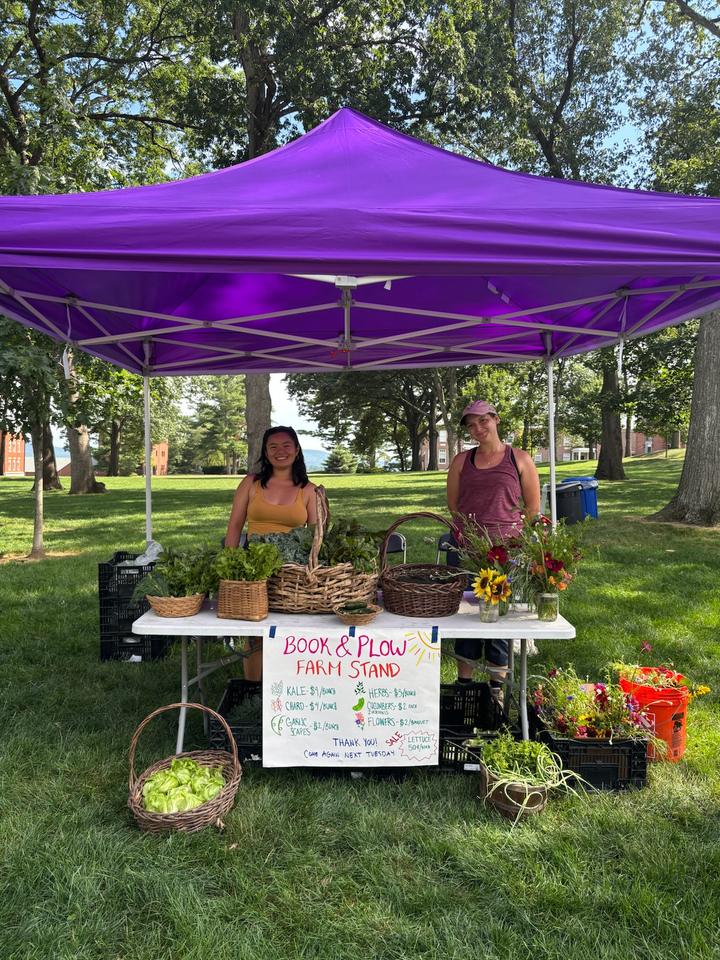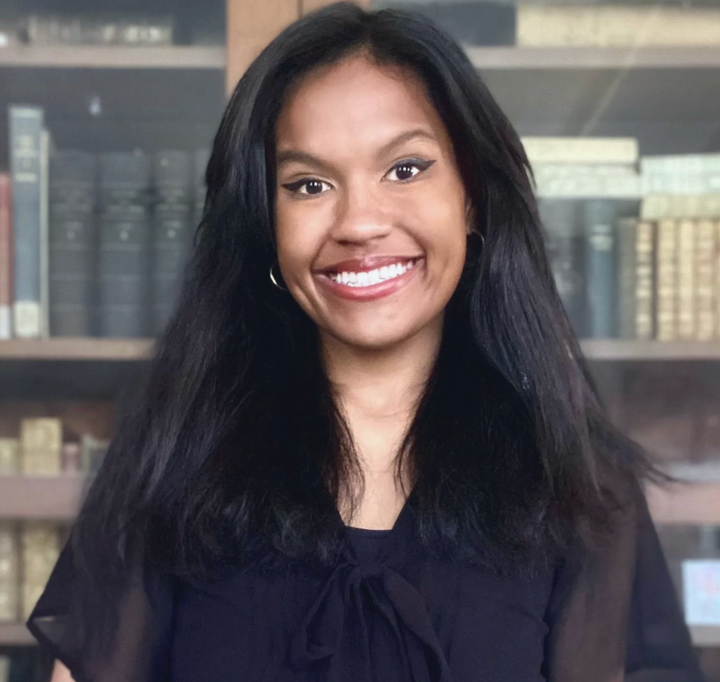Healing Communities: Pursuing Social Justice Through Public Health — Alumni Profile, Indu Ahluwalia ’84
As a CDC epidemiologist, Indu Ahluwalia ’84 has worked to monitor populations’ health issues with an emphasis on community empowerment.

When I jumped on a call with Indu Ahluwalia ’84, I was struck by her warmth. She was flying to India that night, but even in the stress of prepping for international travel, she still had an easy laugh and a big smile.
That warmth is key to Ahluwalia’s work. In her nearly 30 years as a Centers for Disease Control and Prevention (CDC) epidemiologist, Ahluwalia has researched a variety of health issues on the population level, most recently studying tobacco usage as the chief of CDC’s Global Tobacco Branch. But she does not just work in an office; she also travels the world to work with communities on identifying public health barriers, and that warmth goes a long way. Ahluwalia’s compassion and open-mindedness leads people to trust her, and that is essential to her work as an epidemiologist.
Life at Amherst
All that was decades away when Ahluwalia first visited Amherst with her high school guidance counselor. She had never even heard of the college before, but she was taken by the beautiful campus and by a “super” interview she had with two admission officers.
“I really liked the whole idea of a liberal arts college,” Ahluwalia said. “I was not interested in going into a technical school, or any[thing] of that sort. I liked science, but I really wanted to explore more.”
Once at Amherst, her first year was challenging, less because of academics and more because of the social environment. As an Indian-American woman whose family was not wealthy, Ahluwalia did not feel like the “typical” Amherst student. The college had gone co-ed only six years before she started, and the student body was overwhelmingly white and affluent.
“It was still very much a male-dominated institution,” Ahluwalia said. “And there were hardly any Brown people at Amherst.”
Ahluwalia met a few peers on her floor who were also students of color. “We were the diversity,” she laughed.
One of these friends, Young Lee Danesh ’84, met Ahluwalia at a fraternity party during their first year. She was “very, very positive, very bubbly,” Lee Danesh said. “She continues to be that way. She always sees good things in people.”
Lee Danesh did not think they became friends solely because they were “outsiders” at Amherst, but she said it may have given them things to bond over.
“I remember being in a dorm and one of the students saying, ‘When I wrote my Amherst College application, I had to put a separate addendum page’ because there were so many who had gone to the school. And she said she had named some 18 family members,” Lee Danesh said. “We didn’t have that kind of historical connection with the college.”
Originally, Ahluwalia was on the pre-med track, but she was drawn to other subjects, especially anthropology and biology. Her courses specifically led her to this change. In her Introduction to Liberal Studies class (what we now know as First Year Seminars), for example, she recreated one of Darwin’s experiments. “We actually went out into the bird sanctuary and plotted out some land and counted all the species,” Ahluwalia said. “That was probably my first ‘aha!’ moment.”
She became an anthropology and biology major and found important mentors in both departments. Professor of Anthropology, Emeritus Lawrence Babb and Professor of Anthropology Donald Pitkin, as well as Professor of Biology, Emeritus Stephen George, were instrumental in helping Ahluwalia discover public health as a potential career path.
“Nobody had even heard of public health at Amherst at that time,” Ahluwalia said.
Most of her peers were interested in finance or similar fields. However, her professors thought she might like public health since it combined her majors, and she was interested in population-level work. Ahluwalia got particularly excited about the field when her mentors pointed out the social justice aspects of it. “Public health is all about social justice in many ways,” she explained. “I wanted to [think about how] we do things that impact large groups of people.”

Getting Started in Public Health
Immediately after graduating from Amherst, Ahluwalia went to graduate school at Yale University to get her master’s degree in public health. One of her professors had been in a CDC-run post-doctoral program, and her experience with him partially inspired her to work at the CDC later on.
“He would run his course like a disease detective,” Ahluwalia said. “So we went out in the field, [doing] a lot of work. I remember going into a nursing home with him, and we were investigating an outbreak of some infectious disease.”
Ahluwalia became involved in public health at a pivotal point in the field: In the 1980s and 1990s, the HIV/AIDS epidemic swept the country, affecting primarily racial minority populations and men who had sex with other men. According to the CDC, 100,777 people died from AIDS from 1981 to 1990.
As scientists tried to understand the disease, fear and misconceptions spread rapidly in the U.S., leading to a rise in homophobia. Ahluwalia described this time as when “social justice was crying out.” Public health officials had to work rapidly to understand what was going on.
“People didn’t know … the longer term impact of having babies who might be born HIV-positive or how do you treat pregnant women [who are HIV-positive],” Ahluwalia explained. In her doctorate program at the University of North Carolina, Chapel Hill, she started to focus on HIV and intravenous drug users, particularly women. Her dissertation was about the reproductive choices of HIV-positive women.
“Being a Brown person, I was able to go into many, many spaces where HIV was,” Ahluwalia said. “Many others couldn’t go in because [of] a politically charged atmosphere around how people saw people with HIV.”
In New Haven, she would go to a weekly dinner prayer service, which many people who were HIV-positive or had AIDS attended.
“There was just this whole healing atmosphere of just looking at your fellow human being as a human being,” Ahluwalia remembered. “Just because you have a disease or orientation, that’s no reason to discriminate against anyone.”
When she became a CDC epidemiologist in 1995, these experiences shaped how Ahluwalia thought about her work.
“Some people are making decisions to discriminate against the most vulnerable and it’s an ethical issue for each person to decide,” Ahluwalia said. “And the bottom line is for me, it was no. And it was not acceptable.”
Working at the CDC
At the CDC, Ahluwalia started with maternal and child health surveillance but has since worked on everything from flu vaccinations to chronic diseases.
Professor of Epidemiology and Biostatistics Caryn Bern at the University of California, San Francisco, was a medical epidemiologist at the CDC and became close friends with Ahluwalia. In the early 2000s, they worked together on a project investigating visceral leishmaniasis, a sometimes-fatal parasitic disease, in a Bangladeshi village.
“Indu designed the part to try to understand what the barriers were at the community level to getting diagnosis treatments quickly because that’s really key to preventing people from dying,” Bern explained.
Ahluwalia worked on conducting focus groups with villagers to determine why women of child-bearing age were more likely to die from visceral leishmaniasis even though they were no more likely to have the disease. Then, she and Bern created educational materials to provide information about the disease and combat misconceptions about transmission.
“She’s much more than an epidemiologist. I think that’s why she’s so effective,” Bern said. “She had a background that included qualitative methods — behavioral science, community empowerment, things of that sort — as well as quantitative.”
Both Lee Danesh and Bern described Ahluwalia’s openness as one of the reasons that she is so effective at working with many different types of communities.
“I don’t have [that] combination of personality traits and skill the way Indu does,” Bern said. “She inspires me, but she inspires people who are from very, very different kinds of backgrounds.”
Another former CDC epidemiologist, Bettylou Sherry, never worked on a project with Ahluwalia but said it was clear even from afar how committed she was to the work she was doing and the communities she was interacting with.
“She was not a slacker. She really pushed to get things done because she was passionate about it, tried hard to do a very good job,” Sherry noted. “She was very good with people … You could just tell that there was a wonderful rapport between them.”
Most recently, Ahluwalia has pivoted her focus to monitoring tobacco usage.
“I run the global tobacco program at CDC,” she said. “Tobacco is … a product that kills people when used as recommended. There are a lot of challenges to that. And I think it is part of protecting people, protecting youths, and empowering communities to make decisions that serve them well in the long run.”

Change in the Public Health Field
Ahluwalia has noticed lots of change in public health over her decades-long career but finds that most of it is positive.
“Now we’re thinking about built environments, for example, or thinking about how you empower communities to make decisions for themselves,” she said. “You’re not just focused on building capacity but enhancing capacity and celebrating the existing capacities.”
The pandemic also sparked a significant rise in public awareness of the field. Ahluwalia noted that various public health issues have become politicized, but she does not let that affect her work.
“I’ve always prided myself in sticking to the science, and we should always stick to the science,” she said.
Even though public health initiatives have been more politicized in recent years, Ahluwalia considers the increased notoriety of the field to be positive.
“People have a better understanding of what public health can do [because] when you’re preventing something, nobody sees it because it didn’t happen,” Ahluwalia explained. “It’s been probably one of the more exciting things for me to see that more and more students are interested in public health [and] interested in social justice.”





Comments ()